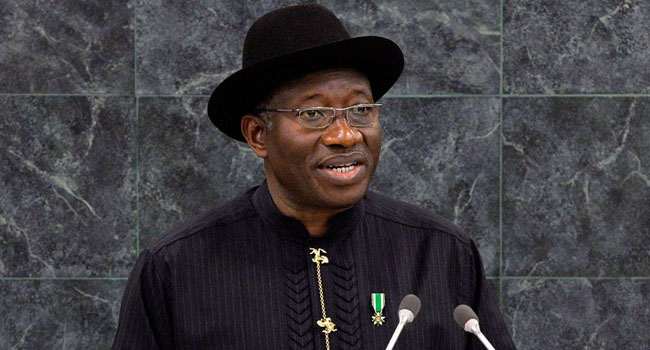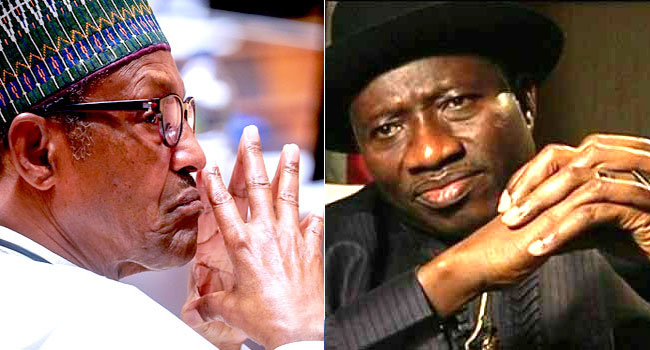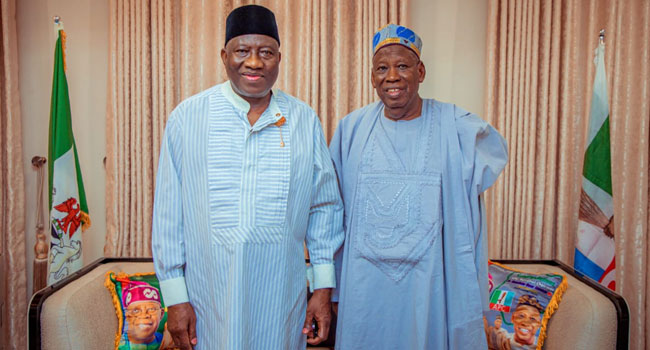
Former Nigerian President, Goodluck Jonathan has asked citizens of Mali to stop the protest rocking the country and embrace peace.
The former President who is part of the envoy from the West Africa bloc ECOWAS made a surprise visit to the Sahel on Monday on the eve of opposition-led demonstrations against embattled President Ibrahim Boubacar Keita.
Speaking at a press conference in the capital Bamako that evening, Jonathan said “demonstrations do not solve problems per se” and talks would resolve the crisis.
“Encouraging more demonstrations is just exposing young people to big risk,” he said. “People could die in the process”.
His appeal came after the opposition on June 5 Movement rejected ECOWAS proposals to end months of political crisis and vowed to stage fresh protests on Tuesday.
The group has been channeling deep frustrations in Mali over a dire economy, perceived government corruption and brutal jihadist conflict.
Last month, 11 people died over three days of unrest following an anti-Keita protest, in the worst political strife the country has seen in years.
Heads of government from the Economic Community of West African States (ECOWAS) stepped in, suggesting on July 27 the formation of a new unity government, among other measures, while sticking by Keita.
The June 5 Movement has continued to insist on the 75-year-old president’s departure, however.
The impasse is alarming Mali’s neighbours and allies, who are keen to avoid the former French colony of some 19 million people sliding into chaos.
Swathes of the country’s territory lie outside of the control of the government, which has struggled to contain a jihadist insurgency that first emerged in 2012 and which has claimed thousands of lives.
The conflict has since spread to neighbouring Burkina Faso and Niger.
On Monday, Jonathan said that he had pleaded with the influential imam and opposition figurehead Mahmoud Dicko to “be a bit mindful about encouraging demonstrations”.
“You can start a demonstration but you will never know how it will end,” he said.
Dr. Jonathan’s presence as a guest during the swearing-in ceremony of the nine constitutional court judges is seen as a strong indication that ECOWAS is deeply engaged in resolving Mali’s political crisis.
Jonathan, who has been leading the ECOWAS mediation mission to Mali, also on Monday night met with some civil society members shortly after he visited populist imam Mahmoud Dicko, who is seen to have links to those behind anti-government protests, in his house in Bamako.
The former President is scheduled to continue his consultations on Tuesday by meeting different stakeholders and members of the international community.
At a press conference in Bamako last night Jonathan appealed to the Malian opposition to stop further demonstrations and embrace dialogue as a means of resolving pending issues.
He said: “We are happy that progress is being made. Today some judges of the supreme court were appointed today. The constitutional court was also inaugurated today. At least, the judicial arm is now complete.
“We know some issues are still pending that are yet to be concluded. We know that before people go on demonstrations, there must be some challenges. These have to be resolved. On behalf of ECOWAS we appeal to the people of Mali to stop further demonstrations and embrace dialogue.
The former President said further: “Those who organised the demonstration have done well to make the whole world know about their
issues. The whole of the ECOWAS region is now aware of the issues in Mali just as the African Union, the European Union, the United States are all aware of the situation here.
We recognise that the right to embark on peaceful protests is in the constitution of Mali.
In that regard, those behind the protests have succeeded in bringing these issues to the knowledge of all.
“This is now the time to stop further demonstrations and give room for dialogue. Demonstrations do not solve problems. It is a discussion and peaceful engagement that solve problems.
“Now that demonstrations have brought out these issues, let us then sit down and
discuss to find ways of resolving them.
“Encouraging more demonstrations may expose the young ones to more danger. More property and lives may be lost.
“You can start a demonstration but you can hardly predict how it will end. On behalf of ECOWAS we call on the great people of Mali to give peace a chance.
“The issue of demonstrations should be discontinued so that fruitful discussions can begin. Our commitment is to continue to meet with all the stakeholders until the problem is solved”, he added.




